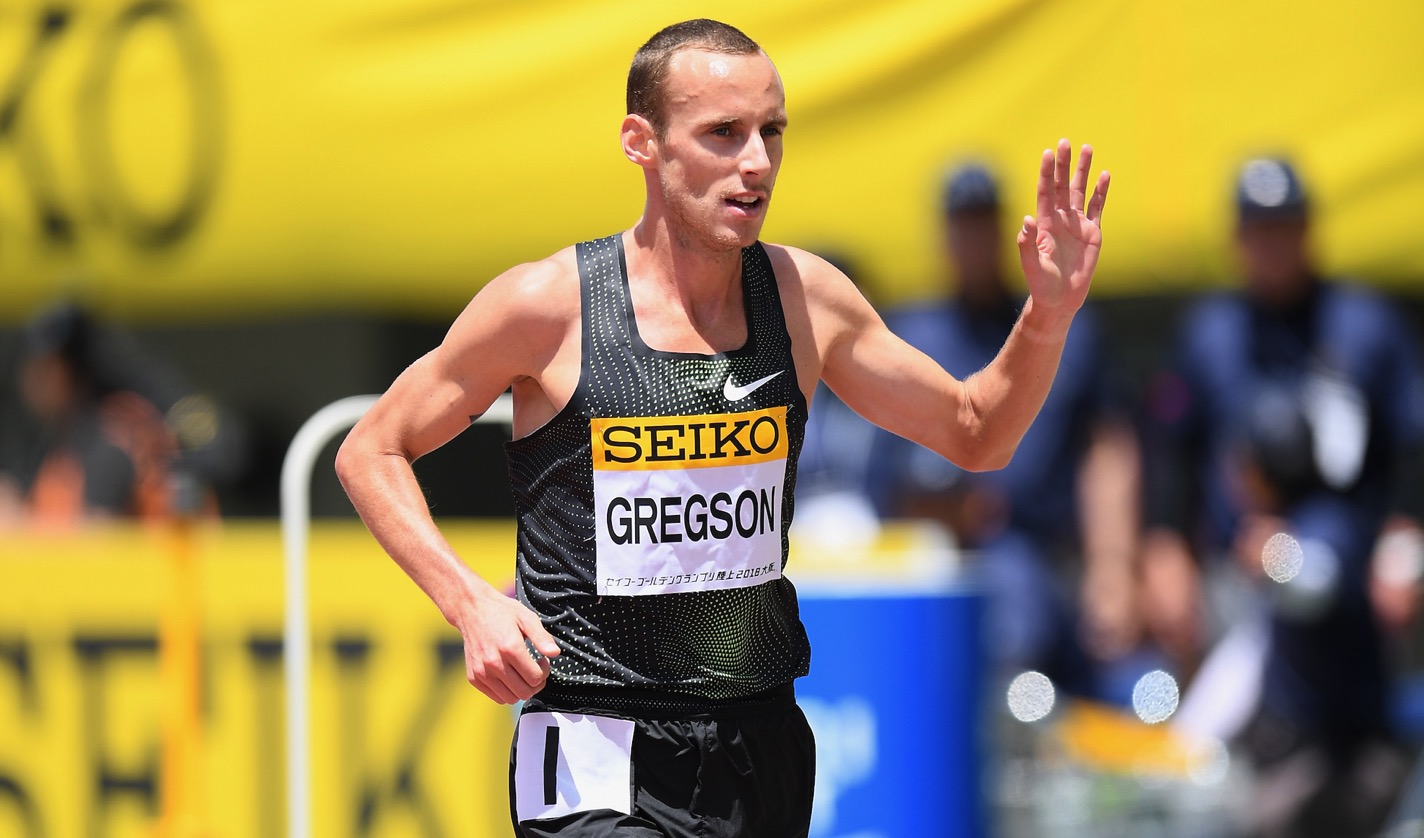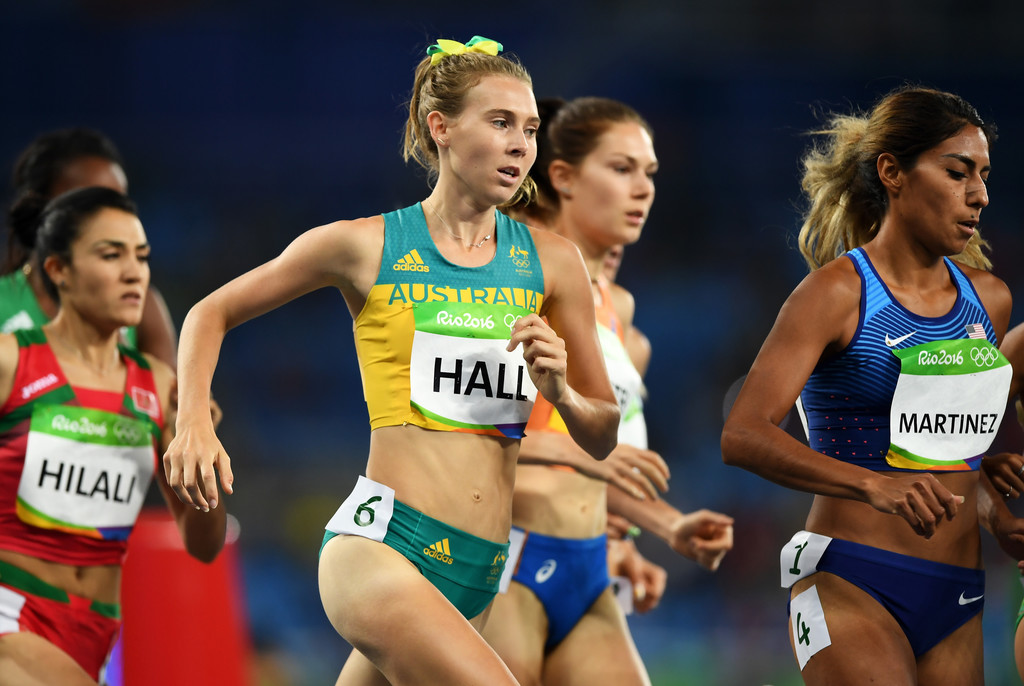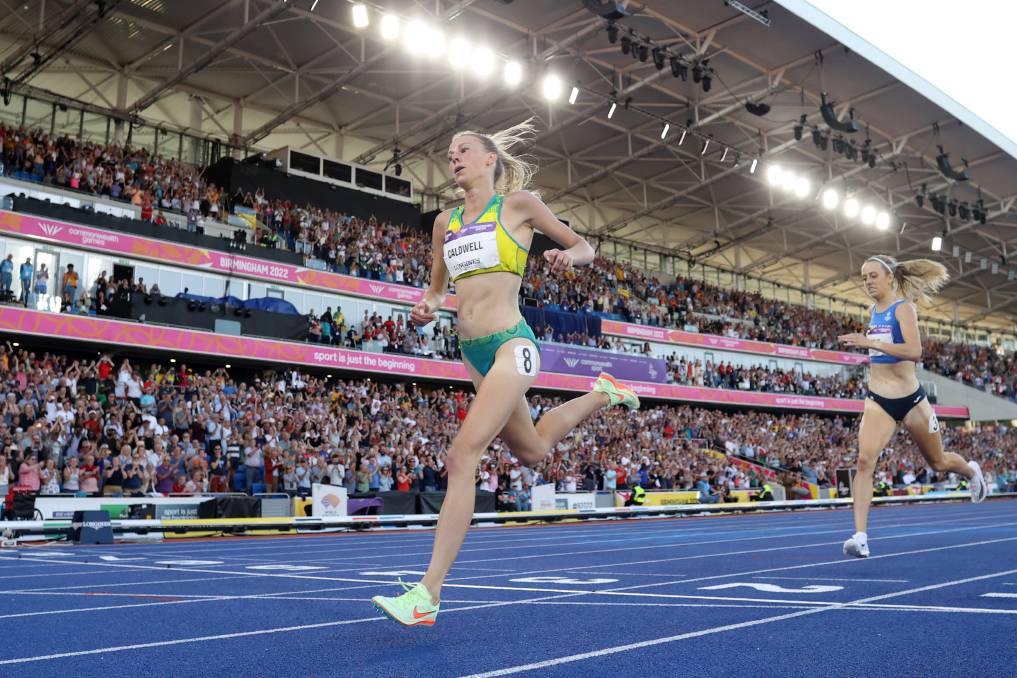By Len Johnson
What a race that was last week (Thursday 22). Cameron Myers leads home a stellar 1500 metres field – including 2022 world champion Jake Wightman – runs the fastest time ever by an Australian man on Australian soil, leads six other Australians and four internationals, under 3:40.
View this post on Instagram
This can’t have happened too often. Checks lists, checks stats. No, why it hasn’t happened since the last time an Australian male ran the fastest time by an Australian male on Australian soil and that would be . . . checks notes again . . . wow, it would be 2021.
For the record, in that fabulous NSW Milers meeting at The Crest track in Bankstown. 17-year-old Myers ran 3:33.30 in defeating Jess Hunt (3:33.64), Wightman (3:34.31), Jye Edwards (3:34.42), Callum Davies (3:35.14), Connor Whiteley (3:36.19), Thomas Keen (GB, 3:36.43), Paul Robinson (Ireland, 3:36.57), Ryoji Tatezawa (Japan, 3:37.13), Ben Thomas (3:37.96) and Matthew Ramsden (3:38.77).
The 2021 race was the final of the 1500 at the national championships in Sydney. Again for the record, Jye Edwards won in 3:33.99 from Stewart McSweyn (3:34.55), Rorey Hunter (3:37.32), Ryan Gregson (3:37.84), Ramsden (3:38.57), Davies (3:38.94) and James Hansen (3:39.21).
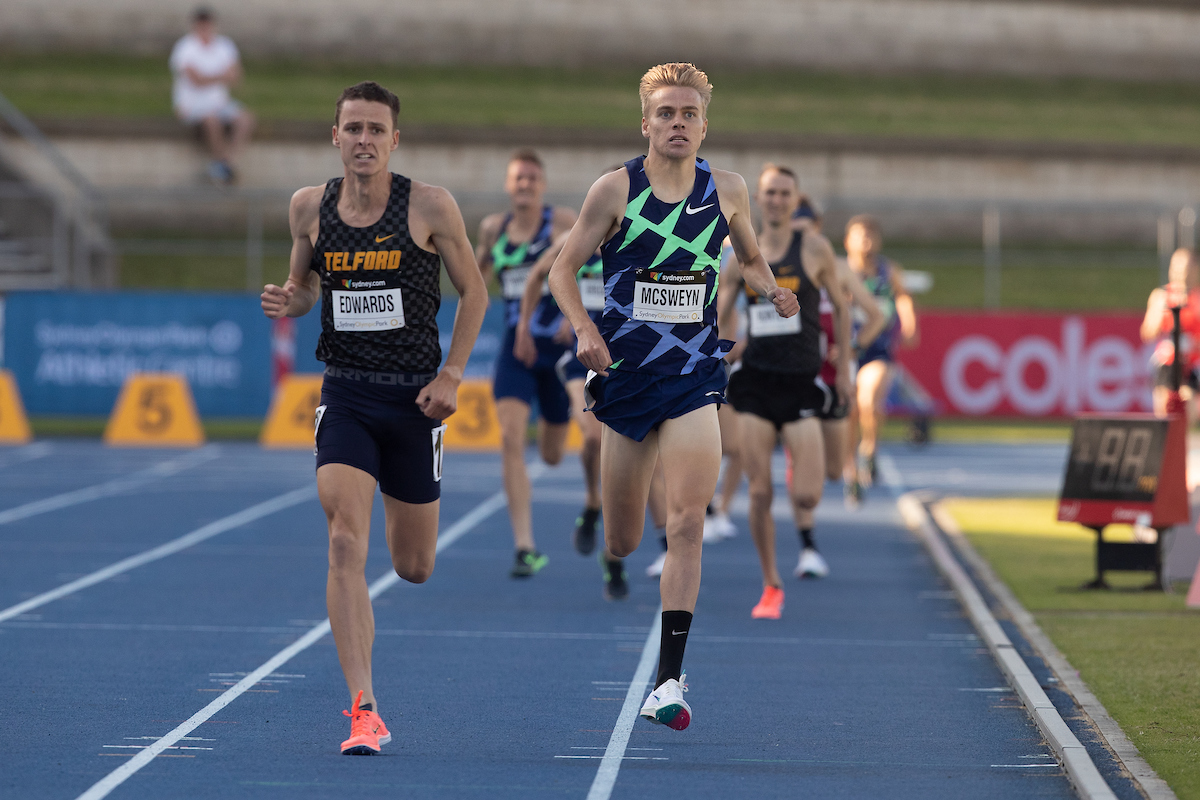
Fastest time by an Australian in a home race both times. Seven Australians under 3:40.00 both times. Compare the pair, as they say in the superannuation ads. Greater quality in depth in the Bankstown race but – some? many? – would say the greater significance of a national championship balances that.

Such arguments, or such decisions anyway, are for the pub and the selection table. If you were lucky enough to see both races you have been privileged to witness two of the greatest 1500s in Australian history.
How to balance such weighty matters. At the peak of our sport the greatest performances have to be either Olympic, world championships or Commonwealth gold medal-winning ones, world records, or both. On that basis it’s an easy matter to rank the best 1500/mile performances.
For the men, it’s John Landy, Herb Elliott, Ollie Hoare, (for historical significance) Edwin Flack and just about forget the rest. The women started much later and jumped into a deeper talent pool (Africa – African athletics — had already been invented!). But any shortlist would include the likes of Jenny Orr, Margaret Crowley and more recent exponents in Sarah Jamieson, Linden Hall and Jess Hull.
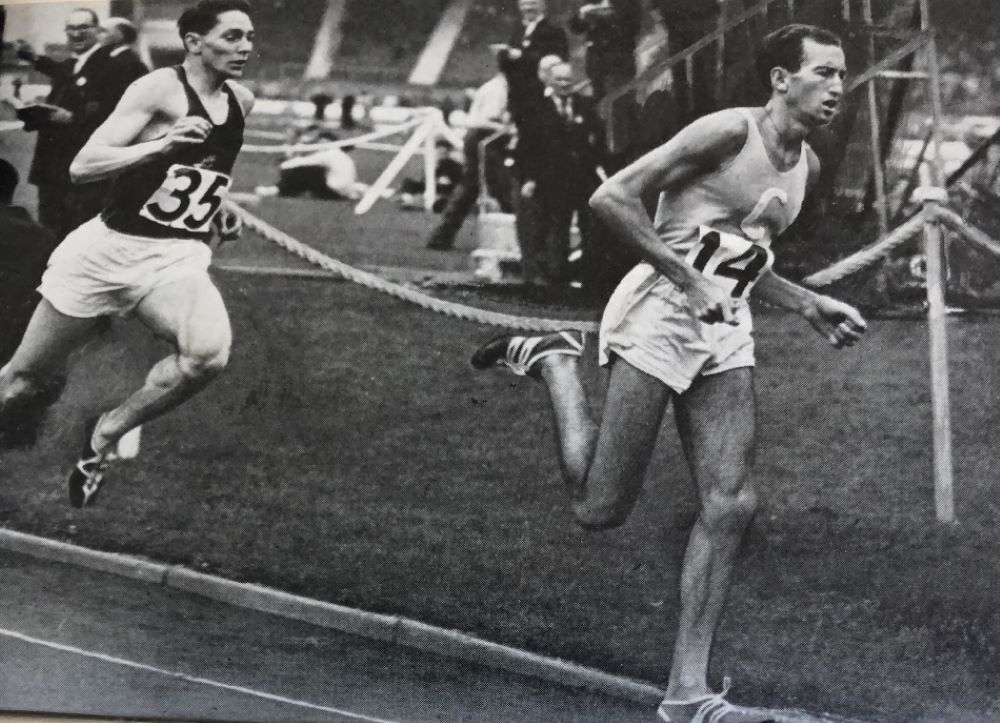
Then there’s the matter of subjective experience. Most of us tend to value the things we see first-hand more highly than those transmitted via television or mere reportage. I still recall the wonder of seeing Herb Elliott’s 3:54.5 world record mile in Dublin in 1958 splashed across the front page of The Herald (Melbourne’s evening broadsheet) with accompanying grainy pictures.
All that said, here’s a non-rigorous, non-objective list of some great Australian domestic 1500 (and mile races). I’m not going to call it a top 10, but I reckon they’d all make the top 20 whatever way on went about compiling the list.
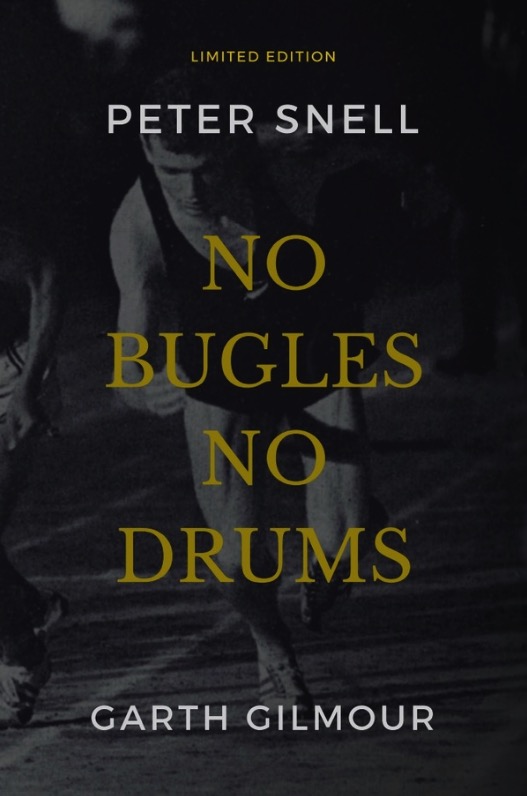
There’ll be more men’s races than women’s races – because history. Australian women barely have any significant mile history. It’s been 1500 metres since it came into the Olympics in Munich in 1972. Jenny Orr’s 4:08.86 national record and eighth place in the final would make the cut. In chronological order please consider:
John Landy 4:02.1 mile, 1952:
The race that re-energised the chase for the sub-4-minute mile. As I wrote in The Landy Era: “Fuelled in equal parts by ambition, meat pies and a chocolate nut sundae,” the lunch Landy consumed on the way between his part-time morning job and Melbourne Saturday afternoon interclub competition, Landy slashed over eight seconds off his previous best in running 4:02.1. The Helsinki Olympic also-ran was on a trajectory which would take him to a world mile record and a 1500 bronze medal at the Melbourne 1956 Olympics.

Herb Elliott v Merv Lincoln, Perth 1959:
Elliott was not yet the unstoppable force of his Rome Olympic victory, nor Lincoln ground down by continual defeats when they met on the grass track of Perth’s Leederville Oval in February, 1958. The race came down to a desperate sprint for the line. Both were timed at 3:59.6 seconds, the first time four minutes had been broken on a grass track. Each man believed he had won. The official verdict was Elliott by 8 inches (20cm). On such small margins are undefeated records built.
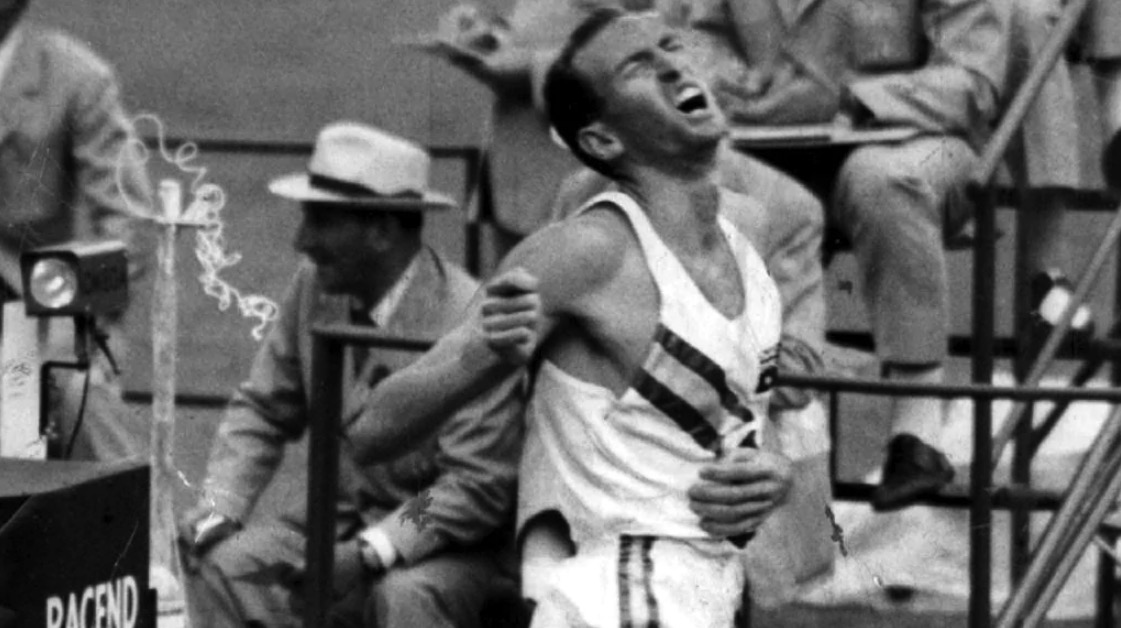
Michael Hillardt, 1980 national championships:
Hillardt, just turned 19, ran 3:39.7 in a real change-of-the guard moment. Montreal 1976 reps Grahm Crouch (ninth in the final) and Randal Markey were fourth and ‘dnf’ respectively. Ken Hall finished fifth. Hillardt became the dominant middle-distance athlete of the 1980s doing his best racing domestically including victories over John Walker and Steve Ovett.
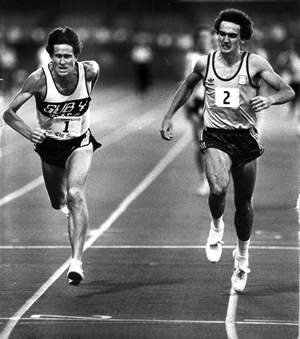
Simon Doyle v Pat Scammell, Melbourne meeting 1991:
In the 1991 edition of the John Landy Mile in Melbourne, Doyle and Scammell turned on a race for the ages. Scammell clung to Doyle’s pace until the final straight before going down, 3:51.54 (still the Landy Mile record) to 3:53.58. Doyle went on to make the world championships finals in Tokyo in 1991 and Stuttgart in 1993, but injury cruelled his 1992 Olympic hopes and curtailed his career.

Kate Richardson (nee Anderson), national record 1996:
Jenny Orr’s national record 4:08.86, set in the semi-finals of the Munich 1972 Olympics, had prevailed for almost 24 years when Kate Anderson and Marg Crowley raced in Brisbane in March, 1996. Crowley led but Anderson was stronger in the final lap winning by a stride in 4:07.03. Crowley had the final word that year, smashing the record in Oslo before finishing fifth in the Altlanta Olympic final. Anderson went on to win the gold medal in the 5000 metres at the 1998 Commonwealth Games.
Ryan Gregson, 3:35.42, Sydney 2010:
Another great domestic race featuring a precocious talent. Gregson was still a couple of months short of his 20th birthday when he confirmed his talent with a win in 3:35.42 at the Sydney Track Classic. Sticking to type for these occasions, he pulled a few along with him. Collis Birmingham ran 3:35.89 for second, Mitch Kealey 3:36.00 for third then Kenya’s Collins Cheboi (3:36.43), Jeremy Roff (3:36.39), Kiwi Adrian Blincoe (3:38.93) and Ireland’s Dave Campbell (3:39.18).
Linden Hall, 3:59.67, Melbourne, 2021:
When Sarah Jamieson ran a national record 4:00.93 in 2006 the first sub-4 by an Australian woman seemed imminent. But it was 15 more years coming and then Linden Hall did it in a solo run at Melbourne’s Box Hill track. Paced through 800 in 2:09-ish, Hall stepped up in the second half of the race to record 3:59.67. She made the final of the Tokyo Olympics later that year and holds the current national record after shuffling it back and forth with Jess Hull since.
Hull, Caldwell, Hall, Griffith 2023 nationals:
Rarely has any Australian final – male or female – boasted four such competitors as Jess Hull, Abbey Caldwell, Linden Hall and Georgia Griffith in the 2023 1500 metres. At various times in the previous four years any one of the four would have started favourite. Hull took the honours this time around, repeating her victory from the previous year. Her 4:04.19 saw her a few metres to the good of Caldwell (4:04.68), Hall (4:05.65) and Griffith (4:07.85). Hull and Caldwell were world championships finalist by year’s end while Hall set a national record in the Diamond League final.
McSweyn v Wightman v Meyers, Melbourne 2024
The first of two 2024 races on the list. The John Landy mile at Melbourne’s annual meeting saw the return from injury of 2022 world champion Jake Wightman. Wightman had one lead-in race, Stewart McSweyn none, while 17-year-old Cameron Myers was continuing his rapid development. Coming into the straight any one of the three could win but McSweyn gallangtly fought of Wightman, 3:52.00 to 3:52.11. Myers, blocked for a run, was third in 3:52.44. Landy would have loved it.
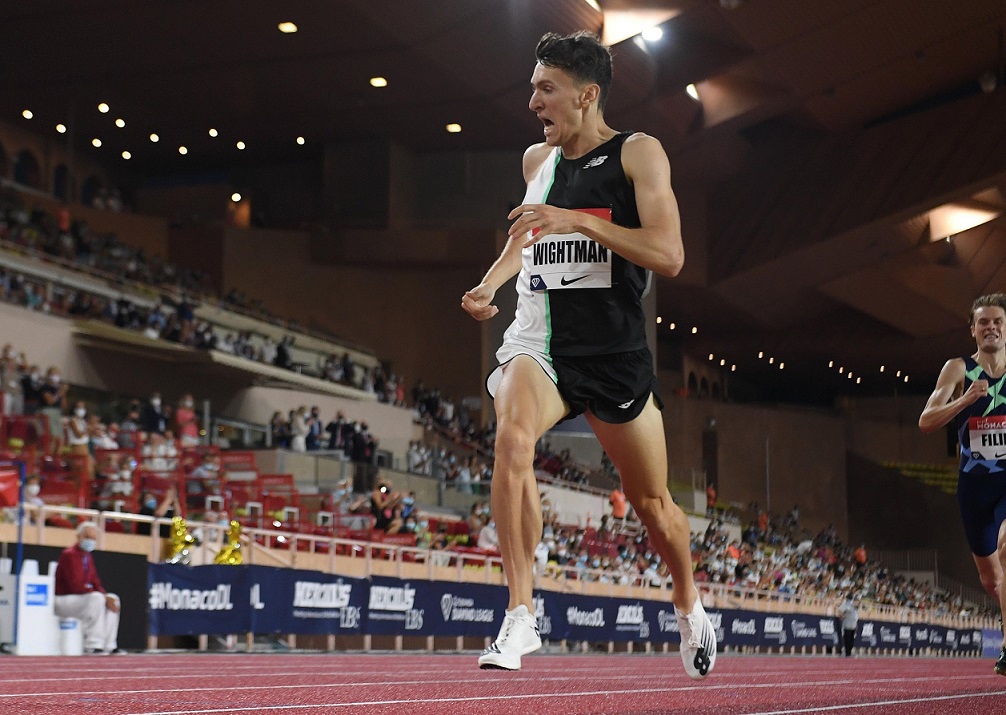
The four-man battle of Bankstown
Take the Landy mile and add one – two considering McSweyn didn’t run this one. Coming into the final straight at The Crest, Wightman, Myers, Jesse Hunt and the resurgent Jye Edwards could all have won. Each probably did look the winner at stages in the final 100 but it was Myers who prevailed in 3:33.30. The unheralded Hunt took second in 3:33.64 from Wightman (3:34.31) and Edwards (3:34.42).
That’s my list. I’m sure there are almost as many different top-10 race lists as there are middle-distance fans.






